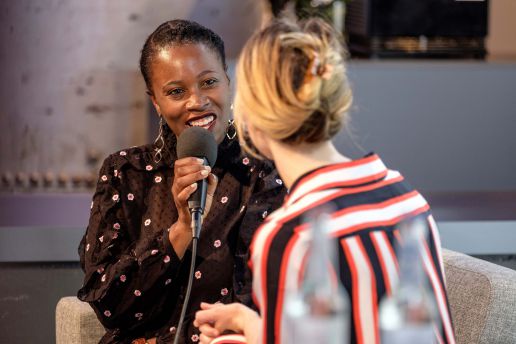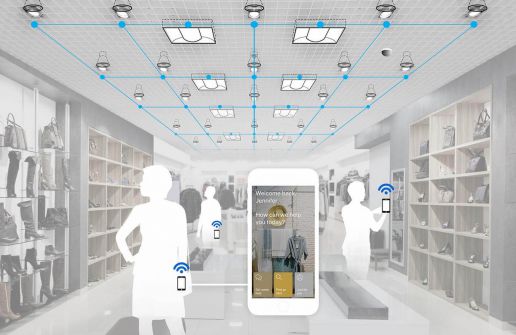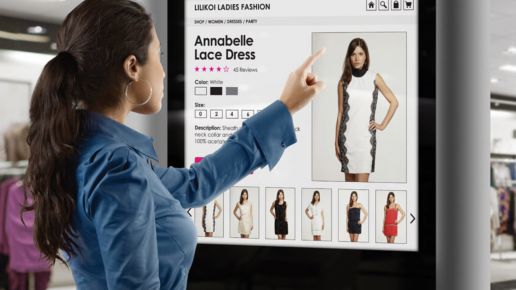Could IoT Be The Technology Solution That Drives More Fashion Businesses To Adopt A Circular Business Model?
ARTICLE BY MUCHANETA KAPFUNDE, FOUNDING EDITOR-IN-CHIEF FASHNERD.COM
Did you know that IoT, Internet of Things, is all around us? With more connected things than people globally, we live in an IoT-enabled world that has the potential to power, a circular future for fashion and retail businesses. Destined to make a quantifiable impact, the Internet of Things has been busy proving itself to be beyond the hype.
Described by experts as a service innovation tool, IoT has been touted as the solution that will help fashion businesses change how they operate when consuming resources and waste production. Designed to make businesses smarter and more responsive, retailers adopting IoT are not only managing to transform their entire value chain; but they are also reducing the impact their business has on the environment. How might you ask? Allow me to elaborate.
Harnessing the Power of IoT
Responsible for automating the world around us, IoT has been described as merging the digital and physical universes. No longer restricted to wearable devices, intelligent cars or smart homes, IoT is a technology solution that offers fashion retailers’ the opportunity to interact and connect with customers, manufacturers and other businesses.
As a solution that presents retailers with the opportunity to reduce their environmental impact, IoT has become vital in supporting the industry to push forward sustainable measures. Sustainably innovating the retail sector and moving fashion towards a new and exciting direction are game-changers, one of them is Eon. The NY based startup, which partnered with Microsoft last year, has developed an IoT software that connects and stores digital identities of connected apparel.
It is no secret that retailers are more adaptors of innovation than innovators themselves. This is why Eon’s IoT platform continues to play a more vital role in everyday business. Redefining fashion and helping the industry scale new circular business models such as rental, resale, digital wardrobing, peer-to-peer exchange, styling services, reuse and recycling, Eon plans to bring a connected and circular economy across fashion to the forefront, which is why in 2020, alongside Microsoft they pledged to have 400 million fashion products online by 2025.
In an interview at Munich Fabric Start’s Keyhouse, in September 2019, I sit down with CEO and found of Eon Group, Natascha Frank. Watch the interview here.
IoT, Playing a Pivotal Role in a New Retailing World
IoT is helping fashion businesses have it all; commercial growth and a strategic system that allows them to keep their environmental commitments. Through IoT sensors and IoT-enabled data analytics, unique opportunities are not only being brought to the forefront; they are also delivering change. Playing a pivotal role in a new retailing world, IoT solutions are positively impacting the fashion industry because they have created conditions that are instrumental in encouraging retailers to increase their sustainability initiatives. Introducing a new awareness, IoT is helping deliver sustainability breakthroughs that include reducing energy use and carbon footprint, optimizing supply chains, sourcing responsibly and minimizing waste.
So it should not come as a surprise that the World Economic Forum estimates that 84% of IoT systems in use have the potential to meet the United Nations Sustainable Development Goals. Even with the scepticism still being received, IoT is still considered to be one of the largest enablers pushing forward the rise of Internet-enabled retail. Not only has it been improving efficiency and transparency, but IoT’s impact has also helped create conditions that allow for specific shifts to happen in retail. With continuous noise coming from the IoT space it is not without its challenges. Read more on this here.
One of the setbacks arising from this nascent trend is the issue of security and privacy. It is a problem that is slowing down the benefits that the IoT revolution can add to the industry’s sustainability initiatives. With most retailers admitting to not being technology experts, it is this lack of IoT know-how when it comes to security and privacy problems that is hindering the widespread adoption of the solution. IoT brings to the table a different set of privacy issues, separate from the ones we already face with ‘regular’ internet. So what is needed is a realistic approach to privacy and security, that came put in place sooner rather than later.
Closing the Gap Between ‘Wanting to be Innovative’ and ‘Being Innovative’
Although not everyone expects IoT to become a universal tool, it does not take away from its tremendous potential to make a pervasive impact on fashion retailers’ sustainability goals. Still considered a relatively young complex technology, IoT has, with time, become a valued digital technology respected for its ability to offer retailers a unique opportunity to tackle some of the most pressing issues like running a greener fashion business.
Accelerated by COVID-19, the gap between ‘wanting to be innovative’ and ‘being innovative’ is growing smaller. It is a change that has come about, mainly due to more retailers starting to invest in IoT for sustainable purposes. As IoT technology goes through continuous improvement, retailers need to be open to playing the long game because I believe that when it comes to the merger of IoT, sustainability and retail, we haven’t seen anything yet.

ABOUT THE AUTHOR
Founding editor-in-chief of FashNerd.com, Muchaneta has worked in the fashion industry for over 14 years. She is currently one of the leading influencers speaking and writing about the merger of fashion with technology and wearable technology.
Muchaneta Kapfunde | editor@fashnerd.com




